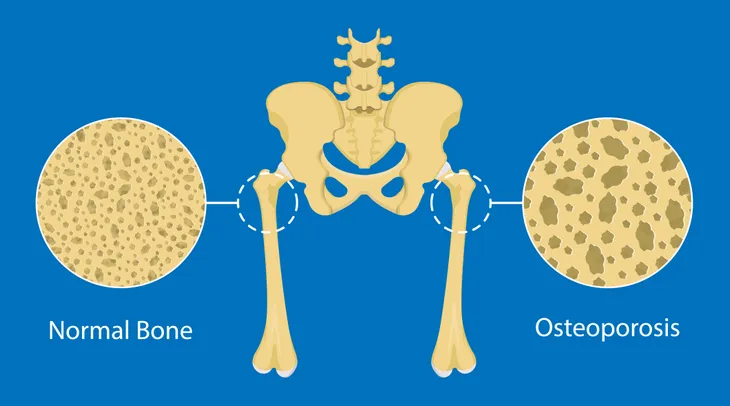- Magnesium plays an integral role in the body so it’s important to get enough of it daily.
- Despite its importance, many individuals in the United States don’t get enough of it in their diet.
- Work with your doctor to find out if you have a magnesium deficiency and to find out if supplementation is right for you.
Magnesium plays many vital roles in the body, from regulating your blood sugar to supporting muscle and nerve function, and so much more. Despite its importance, many people in the U.S. don’t get enough of it in their diet.
While low levels don’t always cause symptoms, chronically low levels may increase your risk of serious health problems like heart disease and osteoporosis. Since magnesium is so important, let’s take a look at all the potential health benefits it has to offer. We’ll also look into how much magnesium you actually need and how to increase your daily magnesium intake.
May Promote Heart Health
The heart is a vital organ at the center of the circulation system. Its major role is to pump blood, sending oxygen and nutrients throughout your body. All the more reason to take care of it! It turns out magnesium may help promote heart health.
In fact, One study suggests that a higher magnesium intake (via either dietary or supplements) is linked to a lower risk of cardiovascular disease, high blood pressure, and stroke. Another review found that magnesium supplement intake improves LDL (bad) cholesterol and HDL (good) cholesterol levels as well as improved systolic blood pressure levels. While more research is certainly needed, these preliminary results are promising for heart health!
 Shutterstock/Syda Productions
Shutterstock/Syda ProductionsMay Prevent Depression
Depression is a disabling disorder that can disrupt an individual’s life. It’s more common than you may think too, affecting roughly 21 million adults in the U.S. And researchers are looking into how magnesium may play a role.
One study researched the association between dietary magnesium intake and depression and found a significant link between very low magnesium intake and depression, especially in younger adults. Another study found that magnesium supplementation helps improve symptoms of depression. While magnesium should not completely replace your treatment plan prescribed by your doctor, it may be worth discussing with your health team as a part of your treatment plan.

May Reduce Anxiety Symptoms
Depression isn’t the only mental health condition that may improve with adequate magnesium intake, it may help with anxiety too! Healthline notes that some research believes magnesium intake can help treat and prevent anxiety.
The source notes a 6-week study that found daily magnesium intake reduces symptoms of anxiety while another review found that having a magnesium deficiency may “increase your body’s susceptibility to stress, which may amplify symptoms of anxiety,” explains the source. Again, magnesium intake isn’t meant to replace your treatment plan but it might be worth discussing with your doctor if you suffer from anxiety.

May Support Bone Health
Taking care of your bone health is important throughout life but especially important as you get older. “After age 50, bone breakdown (resorption) outpaces bone formation and bone loss often accelerates,” explains Johns Hopkins Medicine. This means your risk for osteoporosis greatly increases as you grow older.
One way to help prevent osteoporosis is by making sure you’re getting enough magnesium. Medical News Today says magnesium “may improve bone health both directly and indirectly, as it helps to regulate calcium and vitamin D levels, which are two other nutrients vital for bone health.” The source also references a study that found adequate magnesium intake was linked with higher bone density and a lower risk of osteoporosis.

May Improve PMS Symptoms
Premenstrual syndrome (PMS) can cause uncomfortable symptoms. While they can vary for everyone (ranging from mild to severe), common symptoms include abdominal cramps, fatigue, headaches, and irritability. There are a variety of treatment options that can help provide relief ranging from medication to gentle exercises, but researchers are looking into how magnesium may be able to help too.
Healthline says it’s possible for magnesium levels to fluctuate throughout the menstrual cycle, which may worsen PMS symptoms in individuals who have a magnesium deficiency. “As such, supplements may help reduce the severity of symptoms,” explains the source.

May Lower Risk of Type 2 Diabetes
According to the Centers for Disease Control and Prevention (CDC), “More than 37 million Americans have diabetes (about 1 in 10), and approximately 90-95% of them have type 2 diabetes.” As you can see it’s a prevalent issue in the U.S. Luckily, magnesium may be able to help lower your risk.
Medical News Today says some research has linked “high magnesium diets with a lower risk of type 2 diabetes.” This may be due to the role that magnesium plays in glucose control. The source notes that one review found most people with diabetes have low levels of magnesium while also noting that a magnesium deficiency may worsen the resistance to the hormone that regulates glucose in the body. More research is still needed to back up these findings but the current evidence is promising.

May Improve Sleep
Getting good quality sleep every night is more important than you may think. Sleep plays a vital role in brain function, helps stabilize your mood, reduces the risk of disease, and plays a role in weight management. And it turns out that magnesium may help improve sleep too.
According to Healthline, “magnesium regulates several neurotransmitters involved in sleep, such as gamma-aminobutyric acid.” The source also references a study that found magnesium supplements helped older adults with insomnia fall asleep faster by about 17-minutes. Another review found a link between increased magnesium intake and improved sleep quality and duration.

Anti-Inflammatory Benefits
Inflammation isn’t all bad as it plays a vital role in your immune system to help keep your body safe and healthy. That said, chronic inflammation is a problem and can cause damage, increasing your risk for disease.
Healthline points out that low magnesium intake is linked to increased levels of inflammation. The source also says there’s a link between magnesium supplementation and a reduction in inflammation in the body. If you have chronic inflammation it may be worth getting your magnesium levels checked and discussing what you can do to decrease the inflammation with your doctor.

May Prevent Migraines
Migraine headaches can be very painful and debilitating for some individuals. They can also cause symptoms like nausea or vomiting, as well as sensitivity to noise and light. And researchers are looking into if magnesium can help.
One review says that individuals who suffer from migraines are more likely to have a magnesium deficiency. Other studies also found that magnesium supplementation helps treat migraine headaches and another found that magnesium intake may even help prevent migraines in the first place.

How Much Magnesium Do I Really Need?
According to the Harvard School of Public Health, the recommended dietary allowance (RDA) for adults aged 19-51+ is 400- to 420-milligrams (mg) per day for men and 310- to 320-mg for women. Pregnant women require about 350- to 360-mg daily.
High levels of magnesium from food are safe because “the kidneys will eliminate excess amounts in urine,” explains the source. But the same can’t be said for supplements. High doses of magnesium supplements may lead to diarrhea, nausea, and abdominal cramping. The source also notes that individuals with kidney disease have an increased risk of toxicity from high-dose supplements because their kidneys can’t effectively flush out the extra magnesium.

How to Increase Your Daily Magnesium Intake
The good news is there are many easy ways to increase your daily magnesium intake, starting with your diet. Magnesium-rich foods include dark leafy greens, legumes, nuts (such as almonds, peanuts, and cashews), pumpkin seeds, soybeans, and whole grains (such as brown rice, quinoa, and oats). It’s also found in fish (such as salmon, mackerel, and halibut), as well as poultry and beef.
If you’re unable to get enough dietary magnesium, supplements are an option. That said, before taking supplements, you should discuss them with your doctor to find out if they’re safe for you and find out the appropriate dosage.
 Shutterstock/beats1
Shutterstock/beats1The Warning Signs of a Magnesium Deficiency
Even though magnesium is available in a wide range of foods, the Harvard School of Public Health says most Americans eat less than the recommended amounts. But these deficiencies are likely not enough to produce symptoms. A true magnesium deficiency typically occurs when you don’t have enough in your diet long-term or from malabsorption. Other factors, such as consuming too much alcohol or taking certain medications can also deplete magnesium in the body.
So it’s important to be on the lookout for warning signs of a magnesium deficiency. The source says this may include:
- Poor appetite
- Nausea and/or vomiting
- Fatigue and weakness
- Numbness or tingling in the skin
- Muscle cramps
- Seizures
- Abnormal heart rate
If you develop any of these symptoms or if you’re curious about your magnesium levels, contact your doctor.
